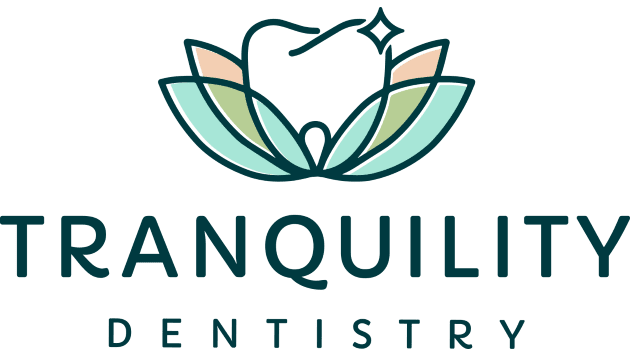
Dental Hygiene for Athletes
Protecting Your Smile on the Field
For athletes, the focus is often on physical fitness, training, and performance, but one aspect that is sometimes overlooked is dental hygiene and protection. Sports-related dental injuries are not uncommon, and the impact on an athlete’s oral health and overall well-being can be significant. In this blog, we will emphasize the importance of mouthguards and proper oral care for athletes, drawing insights from dental professionals.
The Importance of Dental Health for Athletes
- Dental Injuries in Sports
Participating in sports can expose athletes to various risks, including traumatic dental injuries. Collisions, falls, and contact with equipment or opponents can lead to cracked or knocked-out teeth, lip injuries, and even jaw fractures. Such injuries not only cause pain but can also have long-term consequences on an athlete’s dental health and overall performance.
- The Role of Mouthguards
Mouthguards are a crucial piece of protective equipment for athletes. They act as a cushion to absorb and dissipate the force of impact, reducing the risk of dental injuries. Athletes who don’t wear mouthguards are 60 times more likely to experience dental injuries. A well-fitted mouthguard can save an athlete from extensive dental procedures and potential time away from their sport.
Pros and Cons of the three main types of mouthguards
Stock Mouthguards:
Pros:
Affordability: Stock mouthguards are the most budget-friendly option, making them accessible for a wide range of athletes.
Readily Available: These pre-made guards are easily found in sports stores and online, providing a convenient solution for immediate use.
Cons:
Limited Fit: Since they come in standard sizes, stock mouthguards may not provide a secure fit for all users, potentially compromising their effectiveness.
Comfort Concerns: Athletes may find them less comfortable due to the lack of customisation.
Boil-and-Bite Mouthguards:
Pros:
Better Fit: Boil-and-bite mouthguards offer a better fit than stock options, as they can be moulded to an individual’s teeth, improving comfort and protection.
Cost-Effective Customisation: While not as expensive as custom-made mouthguards, boil-and-bite options provide a more tailored fit without the higher cost.
Cons:
Comfort Variability: While generally more comfortable than stock mouthguards, the fit can still vary, and some users may find them less comfortable than custom-made alternatives.
Less Precision: Despite moulding capabilities, boil-and-bite guards may not achieve the same level of precision as custom-made ones.
Custom-Made Mouthguards:
Pros:
Optimal Fit: Custom mouthguards, crafted by dentists based on an athlete’s dental impressions, offer the best fit, ensuring maximum protection and comfort.
Superior Protection: Tailored to an individual’s specific needs, custom-made guards provide the highest level of protection against dental injuries.
Cons:
Higher Cost: Custom-made mouthguards are typically more expensive than stock or boil-and-bite options, which may be a limiting factor for some athletes.
Processing Time: The creation of custom guards involves dental impressions and laboratory work, leading to a longer waiting time compared to immediate-use options.
Read more about mouthguards here
The importance of maintaining good oral hygiene practices. The following tips are recommended:
- Regular Brushing and Flossing: Athletes should follow a consistent oral care routine, brushing their teeth at least twice a day and flossing daily to remove plaque and prevent gum disease.
- Hydration: Proper hydration is crucial for maintaining saliva production, which is essential for protecting teeth and preventing dry mouth, a condition that can increase the risk of cavities.
- Drinking water: Athletes should drink water consistently throughout the day to prevent dehydration. It’s crucial to tailor water intake to individual needs, considering factors like weight and activity level.
- Dietary Choices: Athletes are advised to avoid excessive consumption of sports drinks and sugary snacks, as these can erode tooth enamel and contribute to cavities. Opting for water or sugar-free alternatives is a healthier choice.
- Regular Dental Check-ups: Scheduling regular dental check-ups is also recommended. A dentist can identify potential issues early and provide guidance on oral care tailored to an athlete’s specific needs.
- Caution with Sports drinks: When it comes to sports drinks, caution is advised due to added sugars and acids. Athletes should consume sports drinks in moderation, limiting intake to specific times such as after a game or intense workout. After consuming sports drinks, it’s recommended to rinse the mouth with water to reduce acid exposure.
By following these practices, athletes can take proactive steps to protect their dental health and overall well-being, ensuring they can perform at their best on and off the field.
Sports-related dental injuries can be painful and have lasting consequences, but many of these injuries can be prevented with the use of well-fitted mouthguards. In addition to mouthguards, maintaining a regular oral care routine, watching the diet, and staying hydrated are essential for athletes. Seeking guidance from dental professionals is also crucial to tailor oral care to specific sports and individual needs.
Protecting your smile is not just about aesthetics; it’s about ensuring your overall health and performance remain at their best. So, athletes, gear up, protect your teeth, and keep smiling!
